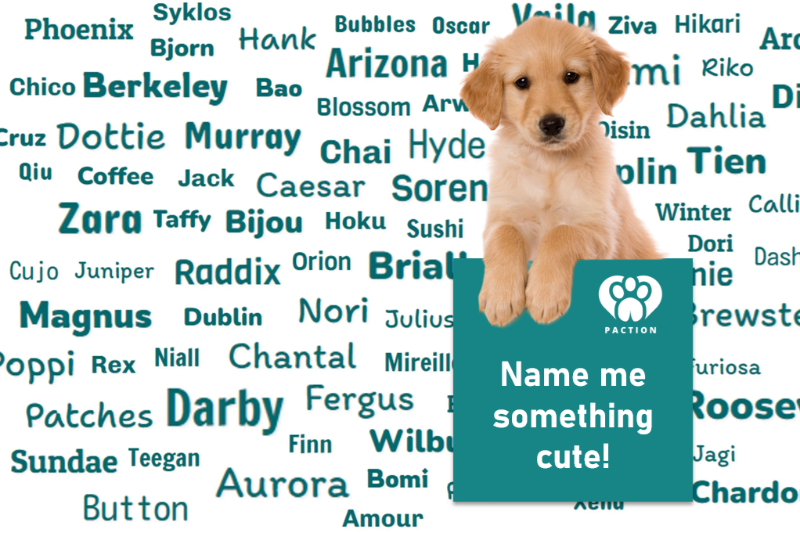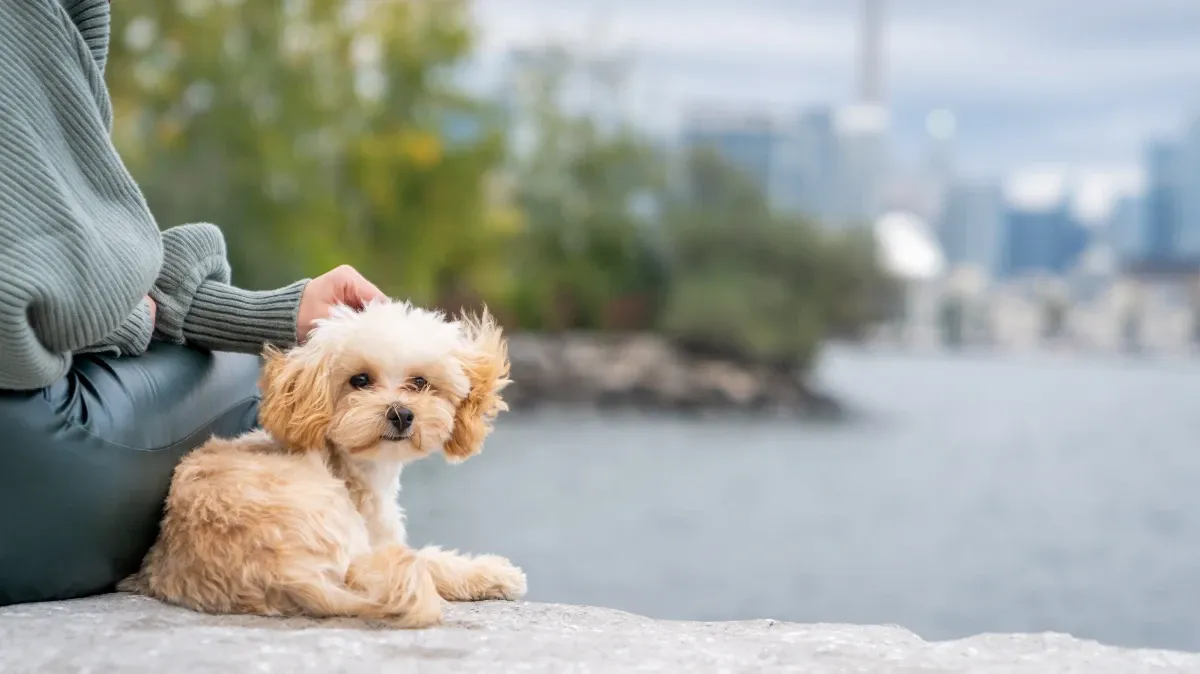Shorkie
Find Shorkie Breeders Near You
Connect with certified breeders who have Shorkie puppies available.
Find Shorkie BreedersGet to Know Shorkies
- Wide Range of Coats: Shorkies can have coats that range from silky and straight (like the Yorkie) to more fluffy and wavy (like the Shih Tzu). Their coat texture, color, and length can vary widely, even within the same litter, making each one unique.
- Big Dog Energy: Shorkies may be small in size, but they have bold, confident personalities, thanks to their Yorkie heritage. Many act like little watchdogs, fiercely loyal and ready to "protect" their humans, despite weighing only 7–15 pounds.
- Strong Bonds: Shorkies are known for being incredibly devoted. Many Shorkies become “Velcro dogs,” following their humans from room to room and craving constant companionship.
- Often Hypoallergenic-Friendly: While no dog is 100% hypoallergenic, Shorkies inherit low-shedding coats from both parent breeds. With regular grooming, they can be a great option for allergy-sensitive households.
- Surprisingly Energetic: Despite their cuddly appearance, Shorkies are lively and energetic. They need daily walks, interactive play, and mental stimulation to stay happy and well-behaved—making them more active than many expect from such a small dog.
Breed History
The Shorkie is a designer dog breed that emerged in the early 2000s from the intentional crossbreeding of a Shih Tzu and a Yorkshire Terrier (Yorkie). This mix was developed to combine the affectionate, loyal nature of the Shih Tzu with the spirited, confident personality of the Yorkie, creating a small companion dog with a big personality. While not recognized as a purebred by major kennel clubs, the Shorkie has quickly grown in popularity, especially among urban pet owners and families seeking a low-shedding, portable, and affectionate companion. The breed reflects a broader trend toward creating “designer” dogs that offer specific personality traits and physical characteristics suited to modern lifestyles.
Personality and Behaviour
- Devoted Companions: Shorkies are incredibly loyal and bond deeply with their humans. They often follow their favorite person from room to room and can become anxious if left alone for long periods, making them best suited for homes where someone is around most of the day.
- Playful & Energetic: Don’t let their size fool you—Shorkies have a lot of spunk. They enjoy interactive play, short walks, and games that challenge their minds. Their energetic personality makes them entertaining and lively household members.
- Vocal & Alert: Shorkies tend to be alert and may bark to alert their family of visitors or unusual noises. This makes them good little watchdogs, but they may need some training to prevent excessive barking, especially in apartment settings.
Care
- Grooming: Shorkies require regular grooming to keep their coats healthy and mat-free. Their hair can grow long and silky, so daily brushing is recommended, along with professional grooming every 4–6 weeks. Routine ear cleaning, nail trimming, and dental care are also essential to their upkeep.
- Exercise: Though small, Shorkies have a moderate energy level and need daily walks and playtime to stay happy and well-behaved. Around 30–45 minutes of activity per day. A mix of light walks and interactive game is ideal to meet their physical and mental needs.
- Training: Shorkies are smart and eager to please, but they can be stubborn, especially if they inherit the Yorkie’s independence. Early positive reinforcement training and socialization are key. With consistency and patience, they can learn quickly and develop into well-mannered companions.
Shorkie Summary
What to ask your breeder?
Here's a short summary of what you should be asking your breeder:
Shih Tzu Health Testing
| Screening | Considerations |
|---|---|
| ACVO Eye Exam | ACVO Eye Exam |
| Patellar Luxation | Veterinary Evaluation of Patellar Luxation. Results registered with OFA. |
| Hip Dysplasia | (Optional but recommended) OFA Radiographic Hip Evaluation |
| Cardiac Evaluation | (Optional but recommended) Advanced Cardiac Exam Basic Cardiac Exam |
Yorkshire Terrier Health Testing
| Screening | Considerations |
|---|---|
| ACVO Eye Exam | Eye Examination- Prior to the onset of breeding, recommend evaluations at 1, 3, and 6 Years of Age. |
| Patellar Luxation | Veterinary Evaluation of Patellar Luxation. Results registered with OFA. |
| Legg-Calve-Perthes | (Optional but recommended) OFA Legg-Calve-Perthes Radiographic Evaluation |
| Autoimmune thyroiditis | (Optional but recommended) OFA evaluation from an approved laboratory - Recommend testing at ages 1, 3, and 6 Years of Age. |
| Cornell DNA Bank | (Optional but recommended) Participation in the Cornell DNA Bank (Blood Sample Required) |
| DNA Repository | (Optional but recommended) Participation in the OFA/CHIC DNA Repository (Blood Sample Required) |
| Hip Dysplasia | (Optional but recommended) OFA Radiographic Hip Evaluation |
How Much Does It Cost to Own a Shorkie Per Year?
Determining the cost of owning a Shorkie is essential for responsible dog ownership. Use our calculator to estimate expenses, including food, grooming, veterinary care, and more.
The Ultimate Dog Cost Calculator
 Calculate Now
Calculate NowFrequently Asked Questions About Shorkie
When you talk to a breeder, you're not just asking “do you have available Shorkie puppies?” You're looking for a match in the process of rehoming a dog. As a prospective dog owner, you are assessing how predictable the dog's health, temperament, and long-term welfare will be and whether the breeder's practices reduce avoidable risk.
You should engage in a conversation about the following topics:
- Which health tests and genetic screening do you do specifically for Shorkie, and can I see the results?
- What do you do if a puppy develops a serious genetic condition? What contract, policies and support do you offer as a breeder?
- How are puppies raised from birth to 8+ weeks? Ask about socialization, philosophies on early neurological development, handling, and exposure.
The real cost of a dog isn't just the puppy price. After year one, the cost of a dog includes the predictable annual costs + the unpredictable “risk costs.” Your goal is to make the cost legible before you commit, as one of the top causes of surrendering a dog is not being able to afford the dog in later years.
To help you assess these costs, Paction has created the Ultimate Cost Calculator. You can also read an article written by a Paction breeder on why a prospective dog owner should focus on the ongoing costs of dog ownership and not “how much” the puppy costs.
Every dog breed has certain health issues that tend to occur more often, but what matters most is how predictable and preventable those risks are. For many breeds, common concerns include inherited conditions (such as orthopedic, eye, or cardiac issues) as well as lifestyle-related challenges like weight management, dental health, skin or ear problems, and anxiety.
Responsible breeders help reduce inherited risk through appropriate health testing, careful selection of breeding pairs, and transparency about family history. To understand more about responsible breeding programs that prioritize health and genetic screening of breeding pairs, check out Making Science Simple: Canine Genetics for Puppy Shoppers.
As an owner, you play an equally important role. Consistent preventive veterinary care, proper exercise and enrichment, healthy nutrition, and early screening can significantly improve long-term health outcomes.
Whether a Shorkie is right for you depends less on the breed itself and more on how well its typical energy level, temperament, and care needs align with your daily life. Important factors include your schedule and activity level, living environment, household dynamics (such as children, other pets, or allergies), and tolerance for noise or independence. Long-term fit also comes down to maintenance like grooming, training needs, and how often you travel or rely on outside dog care.
Use Paction's Dog Breed Matchmaker and Pup Time Estimator to find out more about what dog is right for you.


